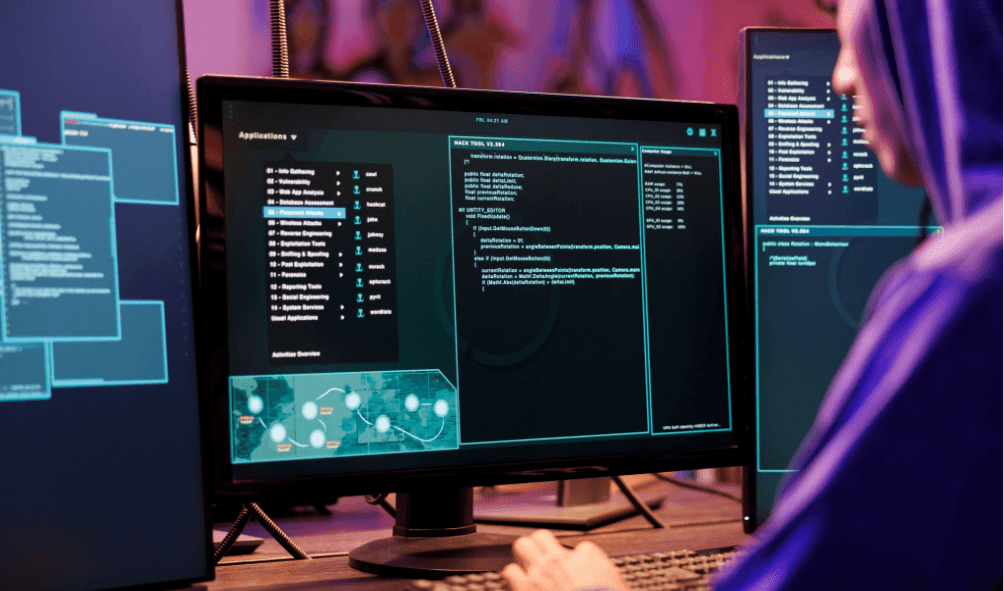Uncategorized
Jun 3, 2027
As remote work becomes more common these days, there are lots of great benefits for both employers and employees. But as more companies adopt these flexible arrangements, they also face various challenges – especially when it comes to managing teams spread out across different locations. Getting everyone collaborating effectively can be a real puzzle. You have to optimize communication channels and really work to foster a sense of unity among team members.
One of the biggest hurdles amid all this is around cultural compatibility. Sure, having technically skilled people is hugely valuable. But what often really binds a remote team together are shared values, norms, and communication styles. If you don’t pay close attention to cultural fit, you risk major disruptions to productive collaboration. Misunderstandings can easily crop up, enthusiasm can wane, and the cohesion that remote teams need to function at a high level can get fractured.
The reality is, as the way we work keeps evolving, companies need to recognize that thriving in remote environments isn’t just about having the right tech infrastructure in place. The human element of cultural cohesion is absolutely vital. Prioritizing cultural compatibility ensures remote teams don’t just survive, but truly thrive – harnessing diversity as a source of strength rather than something creating more barriers. It’s the glue that binds those virtual teams together.
The cultural differences between the work environments in the USA and Latin America are deeply rooted in historical, social, and economic contexts, shaping distinct approaches to various aspects of professional life. Here, we delve into the nuanced differences across several key domains:
Hierarchy and Management Style
In the US, the big emphasis is on egalitarianism – stemming from the nation’s democratic principles and cultural values of equality. This ethos translates into workplace dynamics with flat organizational structures, where the gap between management and employees is minimized. Open communication and collaborative decision-making are encouraged, fostering a sense of empowerment and inclusivity among team members. It’s a meritocracy – people are judged based on their contributions, not just their position.
Latin American workplaces, on the other hand, often reflect historical legacies of colonialism and authoritarianism, where hierarchical structures are deeply ingrained. This top-down approach to management can be traced back to the colonial era, when power was concentrated in the hands of a few. These days, decision-making tends to be centralized, with those in authority commanding respect and obedience from their subordinates. Employees are expected to defer to higher-ups, and communication flows predominantly from the top-down. This vertical structure can lead to slower decision-making and limited autonomy for employees.
Work-Life Balance
For Americans, the pursuit of career advancement is a huge cultural driver. Professionals often invest tons of time and effort into climbing that corporate ladder – seeking opportunities for growth, higher pay, and recognition. Long hours, overtime, and serious dedication to the job are seen as necessary sacrifices for success. But this intense career focus can make it really tough to maintain a healthy work-life balance. Many end up juggling crazy work schedules with personal commitments, leading to burnout, stress, and exhaustion.
In contrast, Latin American cultures tend to place a stronger emphasis on family, personal relationships, and leisure time. While career advancement is still valued, it’s balanced with an appreciation for quality time with loved ones and personal interests outside of work. So Latin American professionals may adopt a more relaxed attitude towards deadlines and scheduling. But this isn’t about a lack of commitment – it reflects a cultural appreciation for enjoying life’s pleasures and maintaining balance between work and personal life.
Communication Style
Directness is the name of the game when it comes to American communication. Clarity and efficiency are prized, with an emphasis on getting straight to the point. Americans prioritize clear, concise communication focused on facts and key messages without a lot of fluff. This direct approach helps minimize ambiguity, avoid misunderstandings, and facilitate efficient decision-making.
Latin American communication styles often involve a lot more nuance, subtlety, and a strong emphasis on relationships. Interactions tend to be more indirect, focused on politeness, diplomacy, and preserving harmony. Conversations aren’t strictly transactional – they include small talk, pleasantries, and personal anecdotes to build rapport and trust before getting into business matters. Feedback, whether positive or negative, is typically framed carefully to maintain the recipient’s dignity and prevent conflict.
Punctuality and Time Management
In American culture, being punctual is huge – it demonstrates respect for others’ time and commitments. Being on time for meetings, appointments, and deadlines is considered basic etiquette in professional and social settings. Americans tend to stick rigidly to schedules, viewing punctuality as a mark of reliability, professionalism, and efficiency. Showing up late or missing a deadline without notice is often seen as disrespectful and can strain relationships or make people question your work ethic.
Many Latin American cultures have a much more relaxed, flexible approach to time management. While punctuality is still valued to some degree, there’s greater acceptance of slight tardiness and more lenient attitudes towards deadlines. Time is seen as fluid and subjective, with less emphasis on adhering strictly to schedules and more focus on nurturing personal relationships and social connections. Lateness might be due to factors like traffic, last-minute obligations, or simply a cultural norm that prioritizes personal interactions over strict punctuality.
Team Dynamics and Collaboration
American workplaces often emphasize individual accountability within a collaborative framework. Employees are expected to take ownership of their responsibilities, with a big emphasis on personal achievement and performance. While competition among colleagues exists, it’s typically viewed as a healthy motivator driving people to excel and innovate. At the same time, teamwork is hugely valued – organizations foster environments where individuals can effectively collaborate, share ideas, and leverage each other’s strengths to achieve common goals. Balancing individual accountability with teamwork creates dynamic environments promoting innovation, creativity, and productivity.
In many Latin American workplaces, cohesion and collective responsibility take priority over individual achievement. Strong interpersonal bonds form the foundation of team dynamics, with employees seeing themselves as part of a collective unit rather than just individuals. Collaboration and cooperation are deeply ingrained, with an emphasis on supporting each other, sharing resources, and working towards shared objectives. While individual contributions may still be recognized, success is often viewed as a collective effort – team achievements get celebrated as a reflection of group unity and solidarity.
Attitude Towards Change and Innovation
The US is a culture that really embraces change and innovation in the workplace. Companies are always looking for new, disruptive ideas to evolve their products, services, and operations. There’s a mindset of continuous improvement and not resting on past successes. The workplace encourages creativity, thinking outside the box, and challenging the status quo.
Employees are empowered to take calculated risks, experiment with new approaches, and learn from failures along the way. There’s an understanding that not every idea will be a home run, but a willingness to keep iterating is crucial for staying competitive and relevant. This openness to change fosters environments of growth and dynamism.
In contrast, many Latin American workplace cultures tend to prioritize tradition, stability, and risk aversion over rapid, transformative change. There’s often more resistance to drastically overhauling established processes or ways of operating. The attitude leans towards “if it’s not broken, don’t fix it.”
That’s not to say change never happens or innovation isn’t valued at all. But the approach is generally more incremental and cautious, proceeding methodically and respecting long-standing norms. There can be skepticism of change for change’s sake – new ideas need to prove their value before being widely adopted.
So in summary – the US enthusiastically embraces a culture of iterative change, while Latin American workplaces tend to move more gradually and deliberately when it comes to evolving their practices. Two contrasting mindsets shaped by cultural backgrounds.



